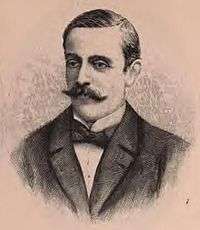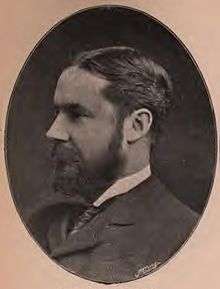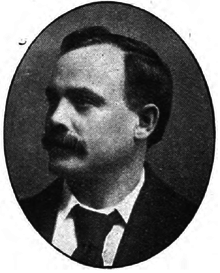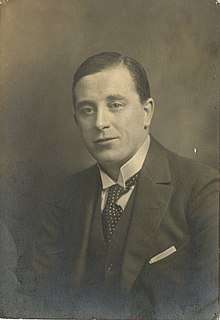Barnsley (UK Parliament constituency)
Barnsley was a Parliamentary constituency covering the town of Barnsley in England. It returned one Member of Parliament (MP) to the House of Commons of the Parliament of the United Kingdom, elected by the first past the post voting system.
| Barnsley | |
|---|---|
| Former County constituency for the House of Commons | |
| County | South Yorkshire |
| 1885–1983 | |
| Number of members | One |
| Replaced by | Barnsley Central, Barnsley East and Barnsley West & Penistone[1] |
| Created from | Southern West Riding of Yorkshire |
History
The constituency was created under the Redistribution of Seats Act 1885 for the 1885 general election and abolished in 1983. It was a Liberal seat in its early years, but by the time of its abolition it had become a Labour stronghold.
Boundaries
The area formerly covered by this constituency is now mostly in the Barnsley Central constituency and partly in the Barnsley East constituency.
Members of Parliament
| Election | Member | Party | |
|---|---|---|---|
| 1885 | Courtney Kenny | Liberal Party | |
| 1889 by-election | William Compton | Liberal Party | |
| 1897 by-election | Sir Joseph Walton | Liberal Party | |
| 1918 | Coalition Liberal | ||
| 1922 | John Potts | Labour | |
| 1931 | Richard John Soper | Liberal National | |
| 1935 | John Potts | Labour | |
| 1938 by-election | Frank Collindridge | Labour | |
| 1951 | Sidney Schofield | Labour | |
| 1953 by-election | Roy Mason | Labour | |
| 1983 | constituency abolished | ||
Elections
Elections in the 1880s
| Party | Candidate | Votes | % | ± | |
|---|---|---|---|---|---|
| Liberal | Courtney Kenny | 6,705 | 71.1 | N/A | |
| Conservative | Bruce Vernon-Wentworth | 2,722 | 28.9 | N/A | |
| Majority | 3,983 | 42.2 | N/A | ||
| Turnout | 9,427 | 85.4 | N/A | ||
| Registered electors | 11,034 | ||||
| Liberal win (new seat) | |||||

Wentworth
| Party | Candidate | Votes | % | ± | |
|---|---|---|---|---|---|
| Liberal | Courtney Kenny | 5,425 | 65.0 | −6.1 | |
| Conservative | Bruce Vernon-Wentworth | 2,917 | 35.0 | +6.1 | |
| Majority | 2,508 | 30.0 | −12.2 | ||
| Turnout | 8,342 | 75.6 | −9.8 | ||
| Registered electors | 11,034 | ||||
| Liberal hold | Swing | −6.1 | |||
Kenny resigned, causing a by-election.

Earl Compton
| Party | Candidate | Votes | % | ± | |
|---|---|---|---|---|---|
| Liberal | William Compton | 6,232 | 62.2 | −2.8 | |
| Conservative | Bruce Vernon-Wentworth | 3,781 | 37.8 | +2.8 | |
| Majority | 2,451 | 24.4 | −5.6 | ||
| Turnout | 10,013 | 79.5 | −3.9 | ||
| Registered electors | 12,593 | ||||
| Liberal hold | Swing | −2.8 | |||
Elections in the 1890s
| Party | Candidate | Votes | % | ± | |
|---|---|---|---|---|---|
| Liberal | William Compton | 6,739 | 65.8 | +0.8 | |
| Liberal Unionist | Francis Foljambe | 3,498 | 34.2 | −0.8 | |
| Majority | 3,241 | 31.6 | +1.6 | ||
| Turnout | 10,237 | 75.0 | −0.6 | ||
| Registered electors | 13,643 | ||||
| Liberal hold | Swing | +0.8 | |||
| Party | Candidate | Votes | % | ± | |
|---|---|---|---|---|---|
| Liberal | William Compton | 6,820 | 59.4 | −6.4 | |
| Conservative | Ronald Greville | 4,653 | 40.6 | +6.4 | |
| Majority | 2,167 | 18.8 | −12.8 | ||
| Turnout | 11,473 | 80.9 | +5.9 | ||
| Registered electors | 14,181 | ||||
| Liberal hold | Swing | −6.4 | |||

Curran
| Party | Candidate | Votes | % | ± | |
|---|---|---|---|---|---|
| Liberal | Joseph Walton | 6,744 | 59.7 | +0.3 | |
| Conservative | James Blyth | 3,454 | 30.6 | −10.0 | |
| Ind. Labour Party | Pete Curran | 1,091 | 9.7 | N/A | |
| Majority | 3,290 | 29.1 | +10.3 | ||
| Turnout | 11,289 | 76.3 | −4.6 | ||
| Registered electors | 14,805 | ||||
| Liberal hold | Swing | +5.2 | |||
Elections in the 1900s
| Party | Candidate | Votes | % | ± | |
|---|---|---|---|---|---|
| Liberal | Joseph Walton | 7,549 | 63.4 | +4.0 | |
| Liberal Unionist | Arthur William Groser | 4,356 | 36.6 | −4.0 | |
| Majority | 3,193 | 26.8 | +8.0 | ||
| Turnout | 11,905 | 74.6 | −6.3 | ||
| Registered electors | 15,948 | ||||
| Liberal hold | Swing | +4.0 | |||
| Party | Candidate | Votes | % | ± | |
|---|---|---|---|---|---|
| Liberal | Joseph Walton | Unopposed | |||
| Liberal hold | |||||
Elections in the 1910s
| Party | Candidate | Votes | % | ± | |
|---|---|---|---|---|---|
| Liberal | Joseph Walton | 12,425 | 71.1 | n/a | |
| Conservative | Arthur William Groser | 5,053 | 28.9 | n/a | |
| Majority | 7,372 | 42.2 | n/a | ||
| Turnout | 83.8 | n/a | |||
| Liberal hold | Swing | n/a | |||
| Party | Candidate | Votes | % | ± | |
|---|---|---|---|---|---|
| Liberal | Joseph Walton | Unopposed | |||
| Liberal hold | |||||
| Party | Candidate | Votes | % | ± | |
|---|---|---|---|---|---|
| C | Liberal | Joseph Walton | Unopposed | ||
| Liberal hold | |||||
| C indicates candidate endorsed by the coalition government. | |||||
Elections in the 1920s
| Party | Candidate | Votes | % | ± | |
|---|---|---|---|---|---|
| Labour | John Potts | 14,728 | 55.1 | ||
| National Liberal | Maurice Moore | 12,011 | 44.9 | ||
| Majority | 2,717 | 10.2 | |||
| Turnout | 75.7 | ||||
| Labour gain from National Liberal | Swing | ||||
| Party | Candidate | Votes | % | ± | |
|---|---|---|---|---|---|
| Labour | John Potts | 12,674 | 48.0 | −7.1 | |
| Unionist | William Craven-Ellis | 6,884 | 26.0 | n/a | |
| Liberal | John Neal | 6,881 | 26.0 | n/a | |
| Majority | 5,790 | 22.0 | +11.8 | ||
| Turnout | 74.1 | −1.6 | |||
| Labour hold | Swing | n/a | |||
| Party | Candidate | Votes | % | ± | |
|---|---|---|---|---|---|
| Labour | John Potts | 14,738 | 51.7 | ||
| Liberal | John Neal | 13,785 | 48.5 | ||
| Majority | 953 | 3.4 | |||
| Turnout | 78.2 | ||||
| Labour hold | Swing | ||||

Sutherland
| Party | Candidate | Votes | % | ± | |
|---|---|---|---|---|---|
| Labour | John Potts | 21,855 | 53.8 | +2.1 | |
| Liberal | William Sutherland | 12,517 | 30.8 | −17.7 | |
| Unionist | William Craven-Ellis | 6,265 | 15.4 | n/a | |
| Majority | 9,388 | 23.0 | +19.6 | ||
| Turnout | 82.3 | +4.1 | |||
| Labour hold | Swing | +9.8 | |||
Elections in the 1930s
| Party | Candidate | Votes | % | ± | |
|---|---|---|---|---|---|
| Liberal National | Richard John Soper | 21,392 | 50.9 | ||
| Labour | John Potts | 20,622 | 49.1 | ||
| Majority | 770 | 1.8 | |||
| Turnout | 84.2 | ||||
| Liberal National gain from Labour | Swing | ||||
| Party | Candidate | Votes | % | ± | |
|---|---|---|---|---|---|
| Labour | John Potts | 25,318 | 58.9 | ||
| Liberal National | Richard John Soper | 17,683 | 41.1 | ||
| Majority | 7,635 | 17.8 | |||
| Turnout | 82.6 | ||||
| Labour gain from Liberal National | Swing | ||||
| Party | Candidate | Votes | % | ± | |
|---|---|---|---|---|---|
| Labour | Frank Collindridge | 23,566 | 64.4 | +5.5 | |
| Liberal National | Seymour Howard | 13,052 | 35.6 | −5.5 | |
| Majority | 10,514 | 28.8 | +11.0 | ||
| Turnout | 36,618 | 72.7 | −9.9 | ||
| Labour hold | Swing | +5.5 | |||
Elections in the 1940s
| Party | Candidate | Votes | % | ± | |
|---|---|---|---|---|---|
| Labour | Frank Collindridge | 30,614 | 72.9 | ||
| Liberal National | Richard John Soper | 11,382 | 27.1 | ||
| Majority | 19,232 | 45.8 | |||
| Turnout | 80.4 | ||||
| Labour hold | Swing | ||||
Elections in the 1950s
| Party | Candidate | Votes | % | ± | |
|---|---|---|---|---|---|
| Labour | Frank Collindridge | 42,008 | 68.6 | ||
| Liberal | Geoffrey Howard Walker | 10,779 | 17.6 | ||
| National Liberal and Conservative | Charles Gordon-Spencer | 8,480 | 13.8 | ||
| Majority | 31,209 | 51.0 | |||
| Turnout | 61,267 | 88.9 | |||
| Labour hold | Swing | ||||
| Party | Candidate | Votes | % | ± | |
|---|---|---|---|---|---|
| Labour | Sidney Schofield | 37,523 | 69.7 | +1.1 | |
| Conservative and National Liberal | Geoffrey Whittaker | 9,296 | 17.3 | +3.5 | |
| Liberal | Geoffrey Howard Walker | 7,002 | 13.0 | −4.6 | |
| Majority | 28,227 | 52.5 | +1.5 | ||
| Turnout | 53,821 | 77.2 | −11.7 | ||
| Labour hold | Swing | ||||
| Party | Candidate | Votes | % | ± | |
|---|---|---|---|---|---|
| Labour | Roy Mason | 29,283 | 72.9 | +3.2 | |
| Conservative | Geoffrey Whittaker | 10,905 | 27.1 | +9.8 | |
| Majority | 18,378 | 45.7 | −6.6 | ||
| Turnout | 40,188 | ||||
| Labour hold | Swing | −3.3 | |||
| Party | Candidate | Votes | % | ± | |
|---|---|---|---|---|---|
| Labour | Roy Mason | 39,485 | 72.8 | ||
| Conservative and National Liberal | R. Anthony Wilson | 14,776 | 27.2 | ||
| Majority | 24,709 | 45.5 | |||
| Turnout | 78.6 | ||||
| Labour hold | Swing | ||||
| Party | Candidate | Votes | % | ± | |
|---|---|---|---|---|---|
| Labour | Roy Mason | 42,565 | 73.7 | ||
| Conservative | John Philip Howard Bent | 15,189 | 26.3 | ||
| Majority | 27,376 | 47.4 | |||
| Turnout | 82.7 | ||||
| Labour hold | Swing | ||||
Elections in the 1960s
| Party | Candidate | Votes | % | ± | |
|---|---|---|---|---|---|
| Labour | Roy Mason | 37,250 | 66.8 | ||
| Conservative | Joan Hall | 9,417 | 16.9 | ||
| Liberal | John Herbert Dossett | 9,089 | 16.3 | ||
| Majority | 27,833 | 49.9 | |||
| Turnout | 80.0 | ||||
| Labour hold | Swing | ||||
| Party | Candidate | Votes | % | ± | |
|---|---|---|---|---|---|
| Labour | Roy Mason | 38,744 | 75.7 | ||
| Conservative | Joan Hall | 12,456 | 24.3 | ||
| Majority | 26,288 | 51.3 | |||
| Turnout | 73.4 | ||||
| Labour hold | Swing | ||||
Elections in the 1970s
| Party | Candidate | Votes | % | ± | |
|---|---|---|---|---|---|
| Labour | Roy Mason | 34,956 | 64.8 | ||
| Conservative | Robert Godber | 10,811 | 20.0 | ||
| Liberal | John Herbert Dossett | 8,186 | 15.2 | ||
| Majority | 24,145 | 44.8 | |||
| Turnout | 71.2 | ||||
| Labour hold | Swing | ||||
| Party | Candidate | Votes | % | ± | |
|---|---|---|---|---|---|
| Labour | Roy Mason | 40,595 | 71.8 | ||
| Conservative | George England | 15,969 | 28.2 | ||
| Majority | 24,626 | 43.5 | |||
| Turnout | 74.6 | ||||
| Labour hold | Swing | ||||
| Party | Candidate | Votes | % | ± | |
|---|---|---|---|---|---|
| Labour | Roy Mason | 34,212 | 65.3 | ||
| Conservative | George England | 9,400 | 18.0 | ||
| Liberal | P. Tomlinson | 8,753 | 16.7 | N/A | |
| Majority | 24,812 | 47.4 | |||
| Turnout | 68.4 | ||||
| Labour hold | Swing | ||||
| Party | Candidate | Votes | % | ± | |
|---|---|---|---|---|---|
| Labour | Roy Mason | 36,276 | 64.0 | ||
| Conservative | George England | 13,654 | 24.1 | ||
| Liberal | Wilfred Whitaker | 5,751 | 10.2 | ||
| Troops Out of Ireland | B. Gallagher | 638 | 1.1 | ||
| Workers Revolutionary | J. Davis | 348 | 0.6 | ||
| Majority | 22,622 | 39.9 | |||
| Turnout | 72.9 | ||||
| Labour hold | Swing | ||||
gollark: It's not *quite* 1984-level.
gollark: At least the US's handling of it makes me feel better about the UK.
gollark: What, several months beforehand?
gollark: What if it was a SECRET biolab in Spain operated by the Illuminati?
gollark: Well, that's... worrying in the longish term, then.
References
- "'Barnsley', Feb 1974 - May 1983". ElectionWeb Project. Cognitive Computing Limited. Retrieved 15 March 2016.
- Craig, FWS, ed. (1974). British Parliamentary Election Results: 1885-1918. London: Macmillan Press. ISBN 9781349022984.
- British parliamentary election results 1918-1949, Craig, F.W.S.
This article is issued from Wikipedia. The text is licensed under Creative Commons - Attribution - Sharealike. Additional terms may apply for the media files.